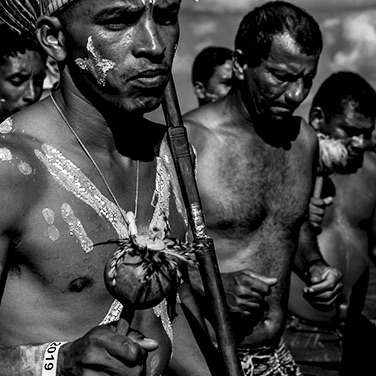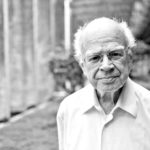Donations

COVID-19 EMERGENCY RESPONSE FUND FOR BRAZILIAN INDIGENOUS PEOPLES
The coronavirus pandemic triggered an unprecedented threat to Brazilian Indigenous Peoples. The current actions to protect these populations which are at great risk are insufficient, disjointed and arrive late; basic emergency assistance is very precarious.
New cases are reported daily. Several indigenous people have been contaminated and many have died, some among the last speakers of their languages. Indigenous elders, guardians of thousands of years of ancestral knowledge, are dying with COVID symptoms.
Emergency measures are in order to support these frail populations. There is famine, disease and death in their villages.
There is no time to lose. Without immediate funding and key lifesaving interventions to deliver essentials, strengthen health systems and maintain routine services for indigenous peoples in Brazil, several of them will die due to direct and indirect impact of COVID-19.
The Brazilian Linguistics Association – Abralin is working with indigenous organizations to provide humanitarian aid to indigenous communities affected by the COVID-19 crisis. Your donation to this fund will help communities on the front lines of the crisis with resources they need to act quickly and protect the most vulnerable immediately.
All funds raised for Abralin’s COVID-19 Emergency Response Fund for Brazilian Indigenous Peoples go directly to support Native organizations on the front lines of COVID-19.
Please donate to the Abralin’s COVID-19 Emergency Response Fund for Brazilian Indigenous People.
You can read how the donations have been used so far here.

ARYON RODRIGUES FUND
The aim of Aryon Rodrigues Fund is to finance projects of documentation and description of Brazilian indigenous languages. Documenting and describing languages is crucial to preserve endangered indigenous languages and a very useful stage in the revitalization of those languages. The Associação Brasileira de Linguística will manage the funding.
What is the Associação Brasileira de Linguística [Brazilian Linguistics Association]?
The Associação Brasileira de Linguística (ABRALIN) is a nonprofit civil corporation aiming to join linguistics professionals in order to promote, develop and publish studies on theoretical and applied linguistics in Brazil among those who are interested in this subject, by promoting scientific meetings, courses and publications. It was founded on January 9th, 1969 in a meeting held by Joaquim Mattoso Câmara Júnior, in São Paulo state. First, the Association was headquartered in Niterói, Rio de Janeiro; but today, ABRALIN is definitively headquartered in the Universidade Estadual de Campinas [Federal University of Campinas] (UNICAMP).
Who was Aryon Rodrigues?
Born in Paraná in 1925, Aryon Rodrigues was already dedicated to study indigenous languages in middle school, where he had the linguist Rosário Farani Mansur Guérios as one of his teachers. Rosário Farani is a pioneer of indigenous languages studies in Brazil. In 1963, when invited by Darcy Ribeiro to create the Linguistics Department of the Instituto de Letras [Languages Institute] of UnB and to proceed with his master’s degree in Linguistics, he moved to Brasília. Several initiatives to introduce linguistics in Brazil counted on Aryon Rodrigues among their promoters, such as the launching of Estudos Linguísticos: Revista Brasileira de Linguística Teórica e Aplicada [Linguistic Studies: Brazilian Academic Journal of Theoretical and Applied Linguistics] in the Linguistics Institutes, and the creation of the Associação Brasileira de Linguística (ABRALIN), of which he was the first president. In 1965, in the I Seminário de Orientação Linguística para Professores do Ensino Médio e Universitário [1st Seminar of Linguistic Advise for High School and College Teachers], Aryon gave the speech O linguista de campo: sua formação e tarefas [The field linguist: his/her education background and tasks]”, which served as a base for him to writing his article “Tarefas da Linguística no Brasil” [Linguistic tasks in Brazil]”, in which he addresses several matters, but some indigenous linguists considered it as a manifest supporting the study of Brazilian indigenous languages.
Professor Aryon Rodrigues exhaustively worked at UNICAMP and at UnB so that the Brazilian indigenous languages could be an object of study in universities, by giving support, speeches and courses and by training and encouraging people. A great number of indigenous languages were described by linguists who were his students; and some others by his master’s degree students. More languages continue to be described, studied and revitalized under the auspices of his pioneer support.
What is the Aryon Rodrigues Fund?
Aryon Rodrigues fund will work as a financing platform based on donations by individuals and corporations to projects of documentation and description of Brazilian indigenous languages.
Projects of documentation and description of languages are usually complex and very expensive, as they involve trips, expenses of researchers doing fieldwork, the use of expensive equipment and the payment to reporting agents and specialists to perform several tasks. In addition, projects of documentation and description of languages are usually long, as they involve activities that take too long to complete. The result of this kind of project is extremely important for science, but overall for communities whose languages are documented and described.
As a target to launch the first notice for financing projects of documentation and registration of Brazilian indigenous language, ABRALIN had set an amount of 500,000.00 BRL. This entire amount will be exclusively used to finance projects that meet the requirements established in the notice exclusive for this purpose. The project proposals sent to ABRALIN will be examined by linguistics specialists, who are accurately selected to avoid conflict of interests.
We really believe that our society must engage in the commitment to avoid the extinction of indigenous languages in Brazil. Before the current context of scarce public investment in scientific research, we suggest this alternative for financing projects of documentation and description of Brazilian indigenous languages. We count on everyone’s participation.
